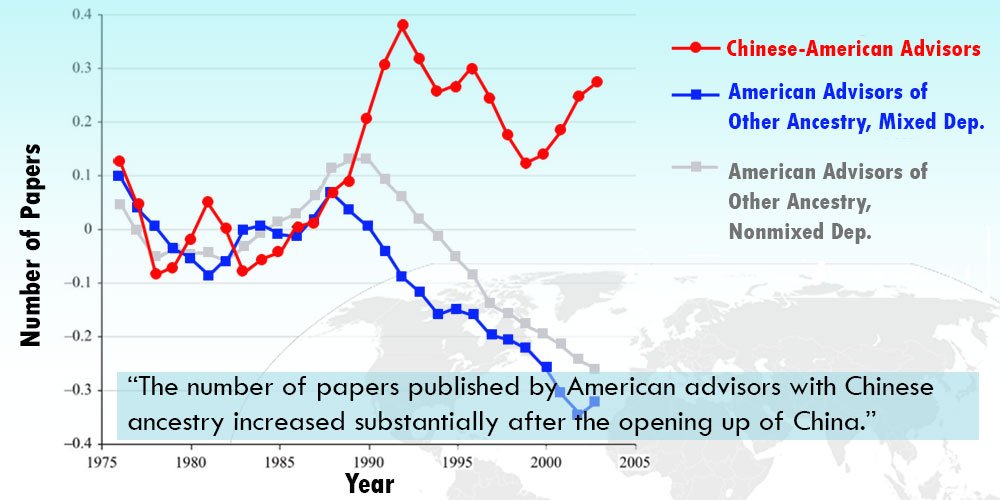Tracking the Effects of a Diaspora on Knowledge Production
Many economists have shown that ethnic diasporas are important for foreign direct investment, technology transfer, and international trade, but little is known about how international diasporas affect the production of scientific knowledge.
In a new paper in the Journal of Human Resources, George Borjas (Harvard University), Kirk Doran, and Ying Shen (both of University of Notre Dame) take a look at how an increase in the number of Chinese graduate students caused by the opening up of China affected the productivity of their advisors in American universities.
As shown in the figure, the number of papers published by American advisors with Chinese ancestry increased substantially after the opening up of China. Because of “ethnic complementarities,” a tendency for Chinese students to be mentored by Chinese-American advisors, there were many new sources for research collaboration for these advisors, resulting in more published papers.
However, as other graduate students were crowded out by the Chinese students within graduate programs with a fixed size, non-Chinese-American advisors experienced a decline in the number of students they mentored. Correspondingly, there was an obvious drop in the number of publications of the non-Chinese-American advisors in the ethnically “mixed” departments that attracted most of the Chinese students.
The lesson is obvious, but worth emphasizing. As is typical with “labor supply shocks” (sudden changes in the labor pool), there are winners and losers, even when the potential for productive collaborations is very high.
Read the full study in the Journal of Human Resources: “Ethnic Complementarities after the Opening of China: How Chinese Graduate Students Affected the Productivity of Their Advisors” by George J. Borjas, Kirk B. Doran, and Ying Shen



